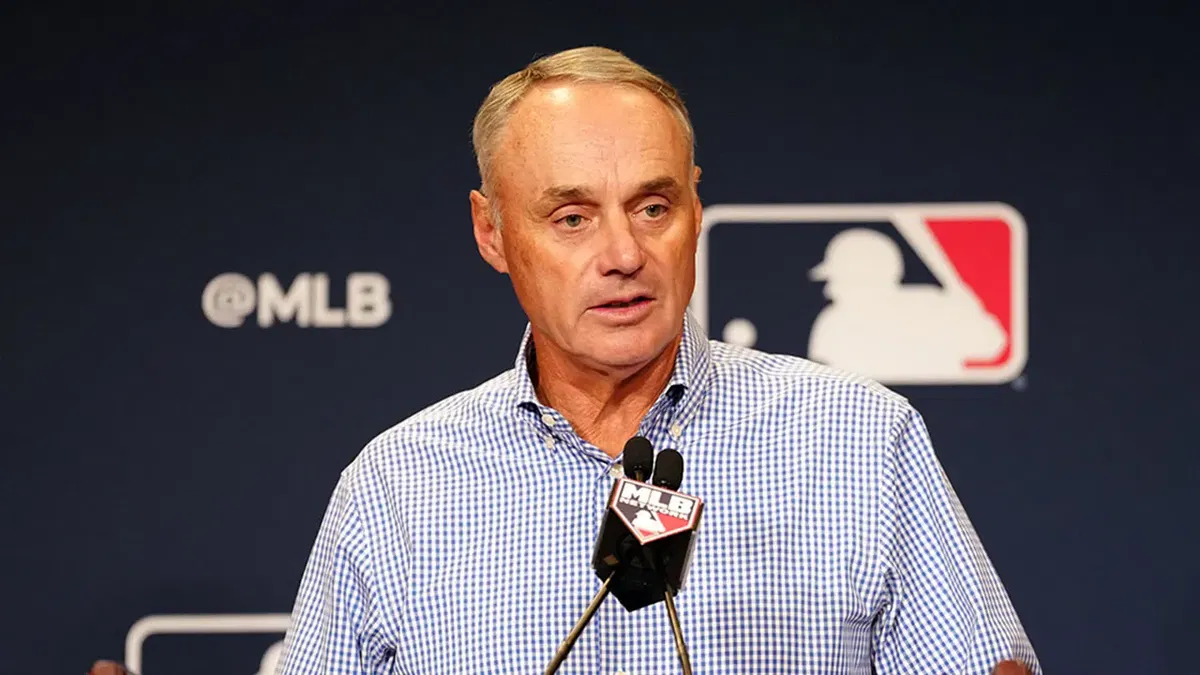

This isn’t merely heckling; this is a torrent of abuse stoked by lost bets. The issue exploded into the scene three months ago when Boston Red Sox reliever Liam Hendriks said he had received death threats. Abusers on social media wanted him dead. And the reason is spreading like cancer. “Enough is enough,” Hendriks exclaimed, describing this as a “daily occurrence.” And his teammate, Lucas Giolito, expressed concerns about the increasing toxicity back in spring training.
Watch What’s Trending Now!
Giolito explained how the abuse is moving far too fast. “It’s getting worse… by the year, by the week, by the day,” he shared recently to Rob Bradford on the Baseball Isn’t Boring podcast. And the threats against Hendriks were “hardly an isolated incident.”
The pitcher mentioned it’s a constant stream of hate. “I’m getting messages after every game,” he stated, adding that even strong performances draw hate over certain prop bets. He spoke of bettors staking money they can’t afford to lose in response to what he calls “a disease,” leading them to “freak out” after a loss.
ADVERTISEMENT
It’s a @BBisntBoring on the Go: Lucas Giolito talked to Rob Manfred today about the growing problem with gambling-induced threats in MLB
Listen: https://t.co/GozwBKiDi2 pic.twitter.com/QY6mLjfzyX— Rob Bradford (@bradfo) July 22, 2025
In the podcast, Giolito shared the story of when MLB Commissioner Rob Manfred visited the Red Sox clubhouse. And how he took the opportunity for a direct, one-on-one conversation. He posed a chilling question to baseball’s most powerful figure.
ADVERTISEMENT
“Is it going to take a player getting assaulted in front of their apartment building by some disgruntled guy who lost a bet for real action to be taken?” Giolito said Manfred seemed “taken aback,” adding that the system for protection is failing. He even shared that whenever he and his girlfriend report vile messages, the result is always the same: “No action was taken.”
It’s not only a Red Sox problem; it’s a leaguewide epidemic. Houston Astros pitcher Lance McCullers Jr. and his family, including his 5-year-old daughter, received death threats. The incident was so serious that police launched an investigation. In San Francisco, Giants players Tyler Rogers and Matt Chapman had to set their Venmo accounts to private. They were being flooded with payment requests from losing bettors. Rogers said he received messages that said, “Hey, you cost me $1,500. You better pay me back.”
ADVERTISEMENT
The abuse has changed its nature. Insults have gone from the simple level “Oh, you suck” to the pointed and financial “You just cost me money,” as Giants pitcher Logan Webb described it. This wave of character assassination isn’t random; it’s a direct product of a changed landscape. The human toll mounts with every game, and players have turned into walking financial instruments in the eyes of many.
A system overwhelmed by the situation
The league and players’ union know they’re in the storm. They established in their 2022 agreement a hotline for players to report threats. They also prohibited stadiums from displaying betting lines on individual player performances. The Red Sox manager, Alex Cora, said players were in a difficult situation and that abusers often hide behind “burner accounts, fake people.”
ADVERTISEMENT
But players believe these measures are not enough. As Liam Hendriks explained, “Nothing ends up happening.”
You can hear the anger out of the dugout. “When we are trying to do our best… and now you’re threatening our families and kids — now I do have a big issue with that,” Astros manager Joe Espada stated firmly when there were threats towards his pitcher’s daughter. This shared outrage from players and managers highlights the severity of the situation.
Top Stories
Framber Valdez Hit With Harsh Reality Check as Orioles, Blue Jays Lock Horns In Heated Battle

Brian Cashman Distances Himself from Yankees’ Offseason Outcome with $162M Hal Steinbrenner Verdict

Cody Bellinger Snubs National Duty For Hal Steinbrenner as Yankees Loyalty Takes Priority

Mets Nation Demands Carlos Mendoza’s Ouster After Fresh Clubhouse Rift Blamed for 2025 Collapse

Max Scherzer’s “Unfinished Business” Sends Clear Signal to Blue Jays After Honest Plea to All 30 MLB Teams

This crisis has clear roots. It all changed in 2018 when the Supreme Court overturned the Professional and Amateur Sports Protection Act (PASPA). That decision opened the floodgates for a “gold rush” of legal sports betting in the United States. Leagues like MLB, which was once wary, are now eager partners. There’s even a BetMGM logo on Fenway Park’s Green Monster, and a massive DraftKings sign looms over left field.
ADVERTISEMENT
Though these partnerships bring money to the league, they leave it in a deeply conflicted stance. Data uncovers the anatomy of this new, toxic relationship. Proposition, or “prop” bets, are a big part of that. They allow fans to wager on a single player’s stats, isolating blame onto one person.
According to NCAA data, the bettors harassed around one in three high-profile student-athletes. In men’s basketball and football, 19 percent of the online abuse is related to betting.
The problem is spread across sports, with data in professional tennis indicating that 40% of all abuse is from disgruntled gamblers. This is not just angry fandom; it’s a measurable result of financializing every play.
ADVERTISEMENT
So for now, the only question is: Where does the sport go from here?
ADVERTISEMENT
ADVERTISEMENT
ADVERTISEMENT